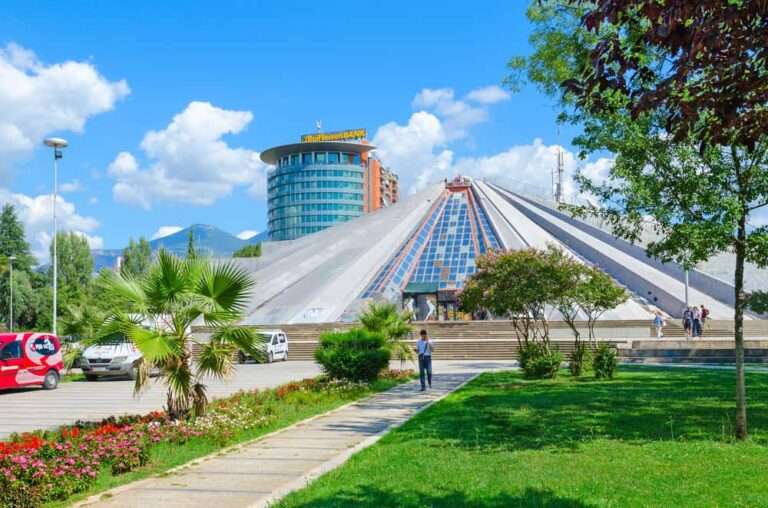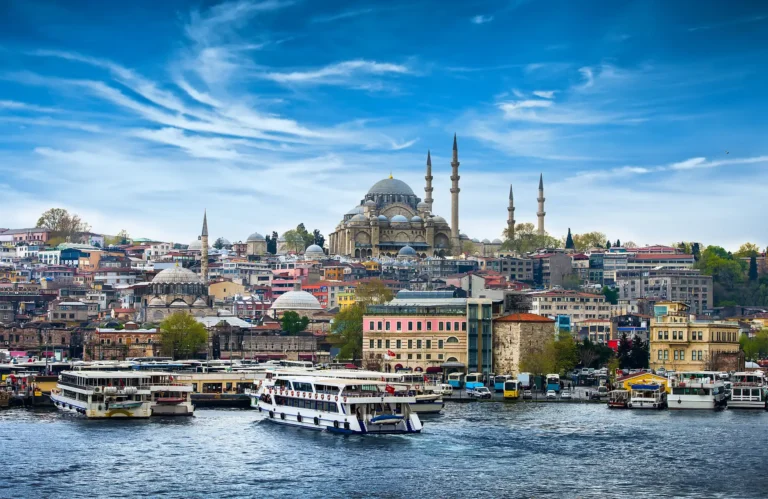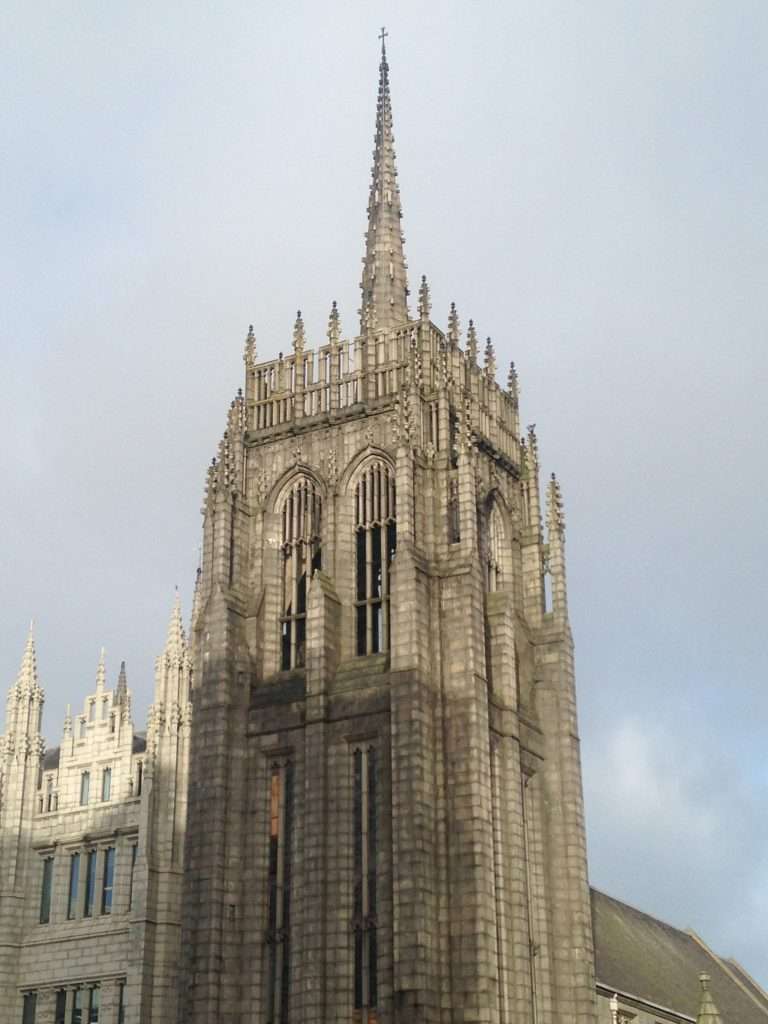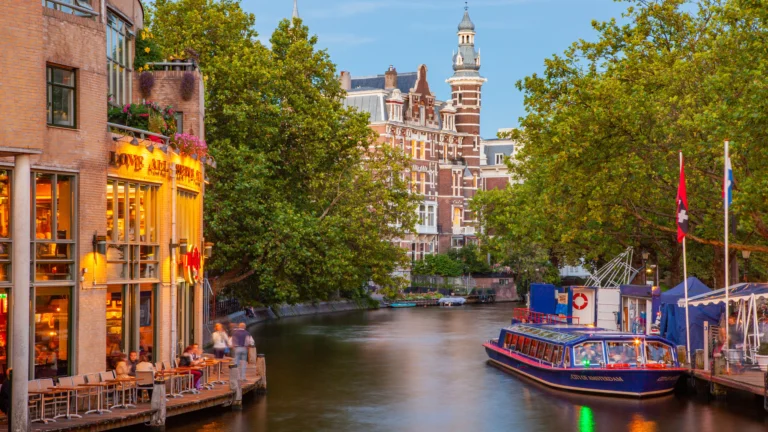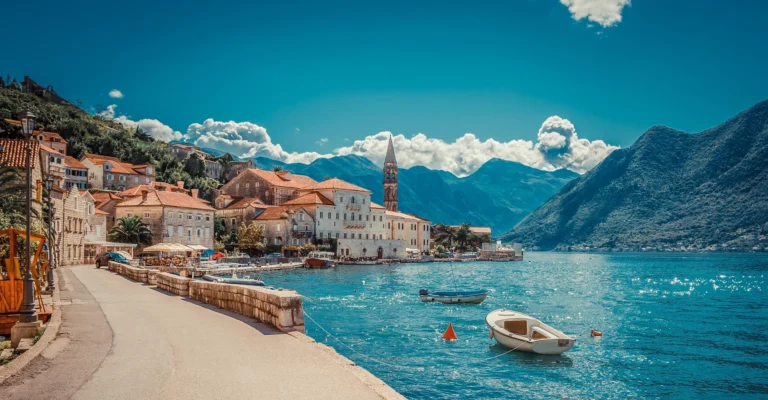With its mix of busy cities and sleepy towns, Ireland offers a unique blend of old-world charm and modern convenience. Whether you’re sipping coffee in a Dublin café, exploring the wild coastlines, or joining a local festival, Ireland has something to captivate every digital nomad. Let’s talk about what makes Ireland a great destination for remote work and how you can make the most of your stay.
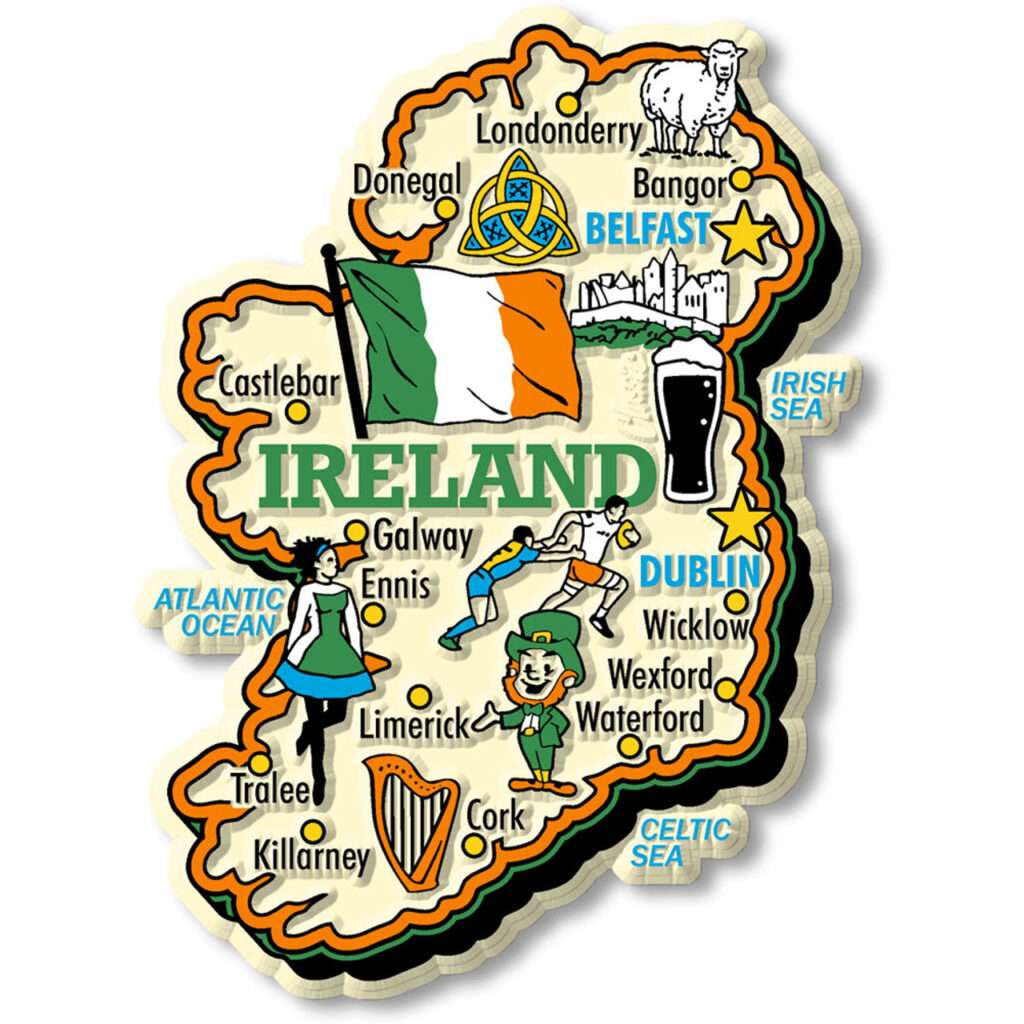
Can I Be a Digital Nomad in Ireland?
Absolutely! Ireland is becoming more popular among digital nomads. While there isn’t a specific digital nomad visa, American Nomads can stay up to 90 days with our passports. EU citizens have the added benefit of visa-free travel and the ability to work without restrictions. Non-EU citizens planning longer stays might consider the “Stay Back Visa” for graduates or the “Critical Skills Employment Permit.” Ireland’s open and welcoming culture, combined with its robust internet infrastructure, makes it an ideal place for remote work.
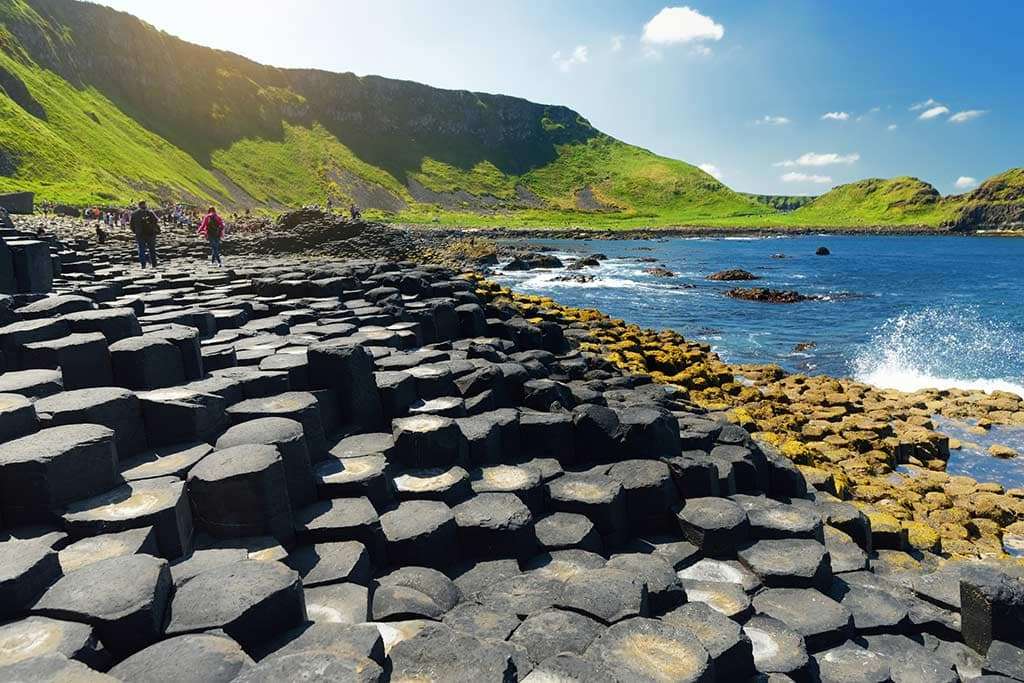
What is the Best Month to Visit Ireland?
The best time to visit Ireland is from May to September. These months offer the most pleasant weather, with July and August being the warmest. However, May and September provide mild temperatures and fewer tourists, making them excellent choices for a more relaxed experience. Be prepared for occasional rain no matter when you visit – it’s part of Ireland’s charm!
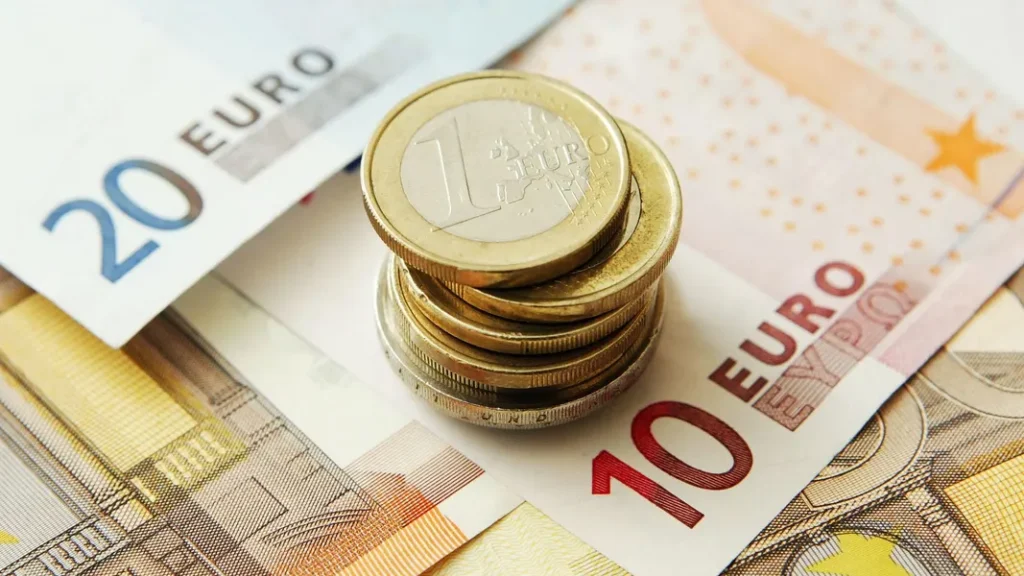
What Currency is Used in Ireland?
Ireland uses the Euro (€). It’s the official currency of 19 EU member states, making it convenient for travel across Europe. While major credit and debit cards are widely accepted, it’s a good idea to have some cash on hand, especially in smaller towns and rural areas. ATMs are plentiful in cities and towns, so you’ll have no trouble accessing money.
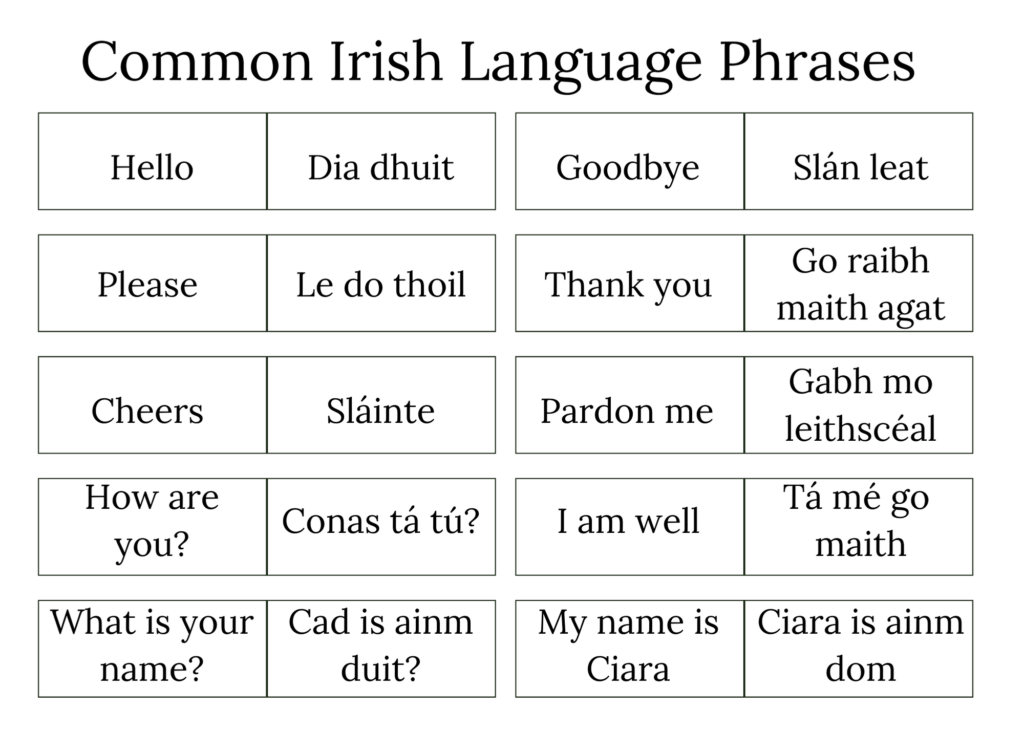
What language is spoken in Ireland?
English is the primary language spoken in Ireland. Irish (Gaeilge) is also an official language and is used in certain regions, especially in the Gaeltacht areas. Most road signs are bilingual, and you might hear Irish spoken in rural areas or during cultural events. However, as a digital nomad, you’ll find that English is used in all business and social interactions.
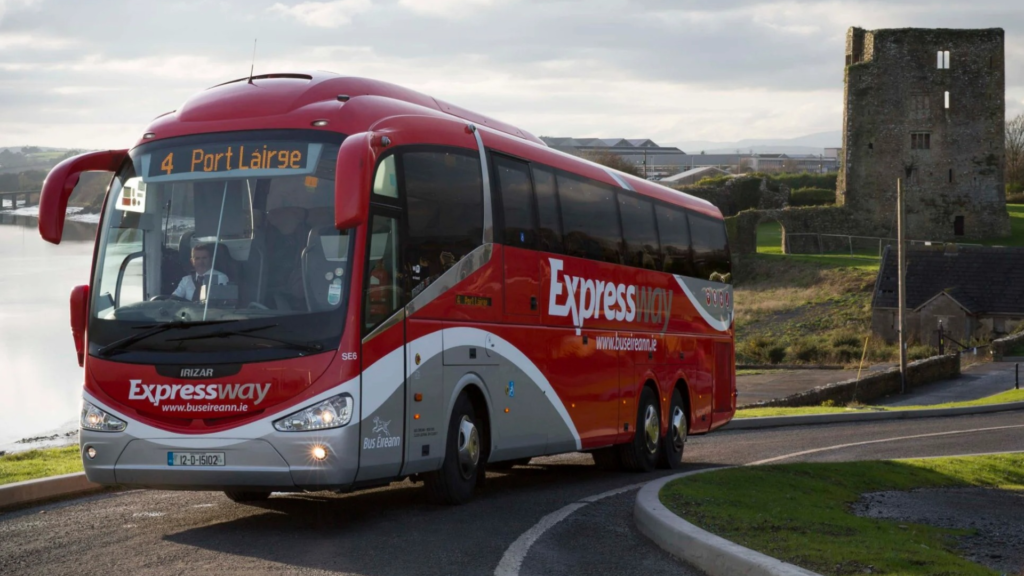
Intercity Travel: Getting Around Ireland
Traveling around Ireland is straightforward, thanks to its well-developed transport network. Here are your main options:
- Trains: Ireland’s rail network connects major cities like Dublin, Cork, Galway, and Limerick. It’s comfortable and scenic but can be pricey.
- Buses: Bus services, such as Bus Éireann and private operators like Aircoach, cover extensive routes across the country. They’re more affordable and frequent.
- Car Rentals: For ultimate flexibility, renting a car is a great option. It allows you to explore off-the-beaten-path locations. Just remember, they drive on the left!
- Domestic Flights: For long distances, like Dublin to Kerry or Donegal, domestic flights are available but less common due to the country’s small size.
- Cycling and Walking: In cities, walking and cycling are popular. Dublin, for instance, has a good network of bike lanes and rental options.
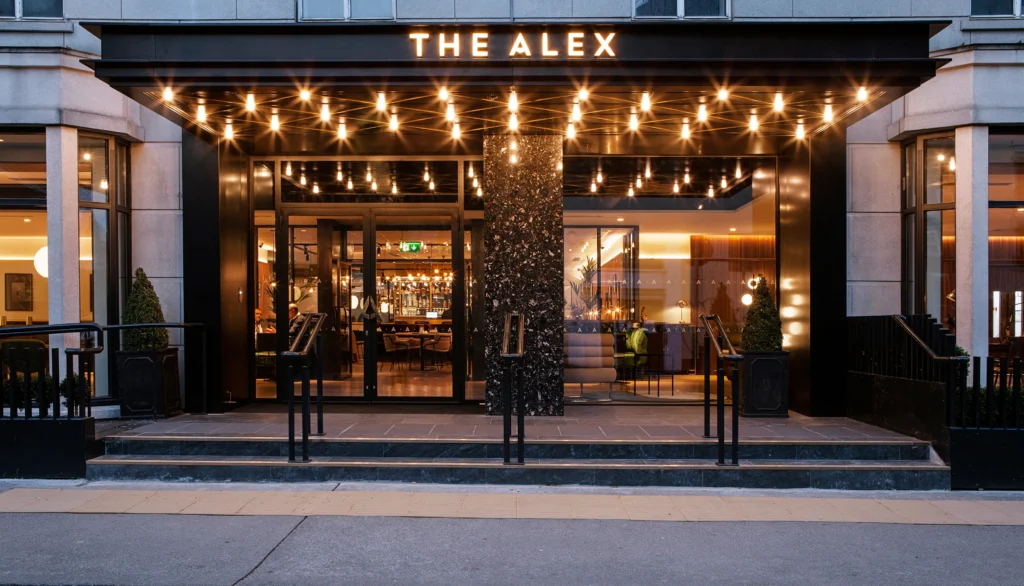
Accommodation in Ireland
Ireland offers a wide range of accommodation options to suit every budget:
- Hostels: Great for solo travelers, hostels are plentiful in cities like Dublin, Cork, and Galway. Check out The Black Sheep Hostel in Killarney and Jacob’s Inn in Dublin.
- Budget Hotels: Affordable and comfortable, options like Travelodge and Ibis are available in major cities.
- Mid-Level Hotels: For a bit more comfort, try Clayton Hotels or Maldron Hotels, which offer good value and amenities.
- Luxury Hotels: For a splurge, the Merrion Hotel in Dublin or Ashford Castle in County Mayo provide a lavish stay.
- Serviced Apartments: Perfect for longer stays, serviced apartments like Staycity Aparthotels offer kitchen facilities and a home-like environment.
- Co-Living Spaces: Trendy co-living spaces like The Collective in Dublin are great for meeting fellow nomads and enjoying communal facilities.
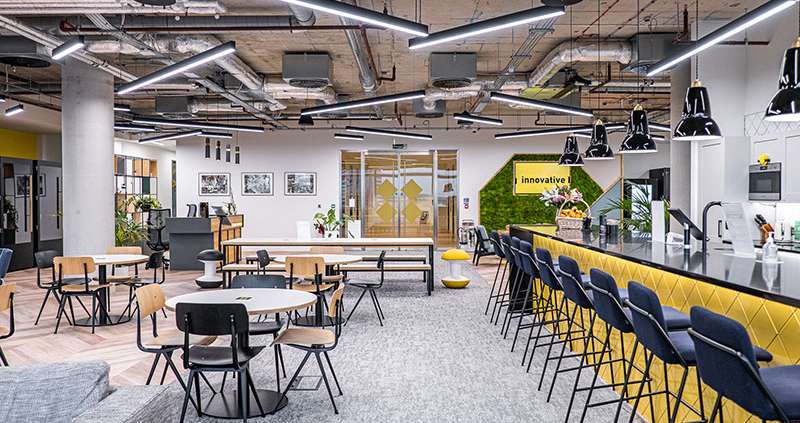
Coworking in Ireland
Ireland’s coworking scene is thriving, particularly in Dublin. Here are some top spots:
- Huckletree D2 (Dublin): A vibrant space with a focus on collaboration and innovation.
- Dogpatch Labs (Dublin): Located in the historic CHQ Building, it offers a dynamic community and excellent facilities.
- The Tara Building (Dublin): Known for its creative vibe and friendly atmosphere.
- Portershed (Galway): A tech-focused coworking space that’s perfect for networking.
- Republic of Work (Cork): Offers flexible workspaces and a strong community feel.

Dining in Ireland
Ireland’s food scene has exploded in recent years, offering everything from traditional fare to international cuisine. Here are some must-try dining experiences:
- Traditional Irish Pubs: Enjoy hearty meals and live music at places like O’Neill’s in Dublin or The Brazen Head.
- Seafood: Visit Kinsale, known as the gourmet capital of Ireland, for fresh seafood.
- Modern Irish Cuisine: Restaurants like Chapter One in Dublin and Kai in Galway showcase contemporary Irish dishes.
- Cafés and Bakeries: Grab a coffee and pastry at spots like Bewley’s Grafton Street Café in Dublin or Gourmet Tart Co. in Galway.
- Farmers’ Markets: Explore local produce and artisanal foods at markets like the English Market in Cork.

Pros and Cons of Being a Digital Nomad in Ireland
Pros:
- Friendly Locals: Irish people are known for their warmth and hospitality.
- Rich Culture: From music and dance to literature and history, there’s always something to explore.
- Scenic Beauty: Stunning landscapes, from the Cliffs of Moher to the Ring of Kerry.
- Connectivity: Good internet infrastructure, especially in urban areas.
Cons:
- Weather: Can be unpredictable and rainy, so always be prepared.
- Cost of Living: Cities like Dublin can be expensive, especially for accommodation.
- Limited Visa Options: No specific digital nomad visa yet, requiring some navigation of existing visa rules.
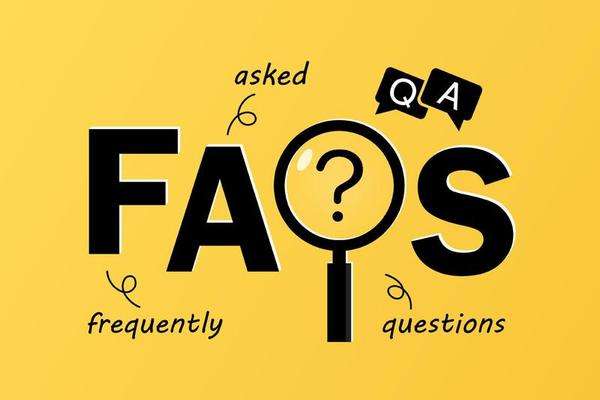
FAQ About Being a Digital Nomad in Ireland
Do I need a visa to work as a digital nomad in Ireland?
EU citizens do not need a visa to work in Ireland, enjoying the freedom of movement within the EU. Non-EU citizens can stay in Ireland for up to 90 days without a visa on a standard tourist visa. For longer stays, non-EU citizens should consider options like the “Stay Back Visa” for graduates or the “Critical Skills Employment Permit.” It’s essential to check the specific visa requirements based on your nationality and work plans before making travel arrangements.
How reliable is the internet in Ireland?
Ireland generally has reliable internet, especially in urban areas. Cities like Dublin, Cork, and Galway offer high-speed broadband, making it easy to work remotely. Rural areas might have slower connections, but mobile internet options and portable hotspots can help maintain connectivity. Major telecom providers like Vodafone, Eir, and Three offer good coverage and various plans to suit different needs.
What is the cost of living in Ireland?
The cost of living in Ireland varies significantly between cities and rural areas. Dublin is the most expensive city, with high accommodation and living costs. On average, you should budget between €1,500 to €2,500 per month, depending on your lifestyle. Other cities like Cork, Galway, and Limerick are more affordable. Groceries, dining out, and transportation costs can add up, so planning your budget carefully is essential.
Is Ireland safe for digital nomads?
Yes, Ireland is considered very safe for digital nomads. It consistently ranks high in global safety indices. Violent crime is rare, and petty crimes like pickpocketing are more common in crowded tourist areas. It’s always a good idea to use common sense and stay aware of your surroundings. Irish people are known for their friendliness and willingness to help, contributing to a generally safe environment.
Can I find international cuisine in Ireland?
Absolutely! Ireland’s food scene is diverse, especially in cities like Dublin, Cork, and Galway. You’ll find a wide range of international restaurants offering everything from Italian and Indian to Chinese and Mexican cuisine. The growing number of immigrants and expats has enriched Ireland’s culinary landscape. Farmers’ markets and specialty food stores also offer international ingredients if you prefer cooking at home.
What’s the public transportation like?
Ireland has an efficient public transportation system, especially in cities. Dublin boasts an extensive network of buses, trams (Luas), and trains (DART). Intercity travel is facilitated by a reliable train system connecting major cities, though it’s more expensive than buses. Bus services like Bus Éireann and private operators cover most of the country. For rural areas, renting a car is often the best option due to limited public transport.
How do I handle banking in Ireland?
Ireland has a robust banking system with many international and local banks. ATMs are widely available, and credit/debit cards are accepted almost everywhere. For longer stays, opening a local bank account might be beneficial. Major banks like Bank of Ireland, AIB, and Ulster Bank offer various services, including online banking. Wise (formerly TransferWise) is also popular among digital nomads for international money transfers due to its low fees and competitive exchange rates.
What’s the best way to meet other digital nomads in Ireland?
Coworking spaces are excellent places to meet fellow digital nomads. Spaces like Huckletree D2, Dogpatch Labs, and The Tara Building in Dublin, as well as Portershed in Galway and Republic of Work in Cork, host regular networking events and social activities. Additionally, joining expat and digital nomad groups on social media platforms like Facebook and Meetup can help you connect with others.
Can I use my home country’s driving license in Ireland?
Yes, you can use your home country’s driving license in Ireland for up to 12 months. After this period, you may need to exchange it for an Irish driving license, depending on your country of origin. Ireland has reciprocal agreements with several countries, making the exchange process straightforward. Always carry your license and international driving permit (if applicable) while driving.
Are there any specific cultural etiquettes I should be aware of?
Irish people are friendly and polite, and they appreciate good manners. It’s customary to greet people with a friendly “hello” or “hi.” Punctuality is valued, especially in business settings. Tipping is standard practice in restaurants and cafes, usually around 10% of the bill. Engaging in small talk about the weather, sports, or local events is common and helps build rapport.
Is healthcare accessible to digital nomads?
Ireland has a high-quality healthcare system, but non-EU citizens should ensure they have travel insurance to cover medical expenses. EU citizens can use their European Health Insurance Card (EHIC) for necessary medical treatment. Private healthcare is also available and might offer shorter waiting times. Pharmacies are widespread and can provide over-the-counter medication and healthcare advice.
What’s the best way to stay fit in Ireland?
Many gyms and fitness centers are available in cities and larger towns, offering various membership plans. Outdoor activities are popular, with numerous parks, hiking trails, and cycling routes. The coastline and countryside provide excellent opportunities for activities like surfing, kayaking, and hill walking. Joining local sports clubs or fitness classes is also a great way to stay active and meet new people.
Are there any local festivals I should experience?
Ireland is renowned for its vibrant festivals. St. Patrick’s Day in March is the most famous, with parades and celebrations nationwide. Other notable festivals include the Galway International Arts Festival in July, the Cork Jazz Festival in October, and the Dublin Theatre Festival in September. These events offer a fantastic way to immerse yourself in Irish culture and enjoy local music, art, and performances.
Can I use my mobile phone in Ireland?
Yes, with international roaming. However, for better rates, consider getting a local SIM card from providers like Vodafone, Three, or Eir. These companies offer various prepaid plans that include data, calls, and texts. SIM cards are easy to obtain from mobile phone shops, supermarkets, or online, and they provide a cost-effective way to stay connected.
How can I travel to Ireland?
Dublin is the main international gateway, with Dublin Airport offering numerous flights from around the world. Other airports like Cork, Shannon, and Knock also serve international destinations, providing alternative entry points. Ferries connect Ireland with the UK and continental Europe, offering another travel option. Once in Ireland, domestic flights, trains, buses, and car rentals make getting around easy.
Are there coworking spaces outside Dublin?
Yes, cities like Cork, Galway, and Limerick have excellent coworking spaces. In Cork, Republic of Work offers modern facilities and a strong community vibe. Galway’s Portershed is a hub for tech startups and innovation. Limerick has spaces like The Urban Co-op, which cater to freelancers and remote workers. These spaces provide reliable internet, meeting rooms, and networking opportunities.
What’s the nightlife like in Ireland?
Ireland has a vibrant nightlife, with many pubs, live music venues, and nightclubs. Dublin is famous for its lively pub scene, particularly in the Temple Bar area. Cities like Cork, Galway, and Limerick also offer a variety of entertainment options, including traditional Irish music sessions, modern bars, and clubs. Nightlife extends beyond the cities, with many towns hosting local music and dance events.
Can I drink tap water in Ireland?
Yes, tap water in Ireland is safe to drink. It meets EU standards for drinking water quality, and in many areas, it comes from natural springs and reservoirs. Carry a reusable water bottle to stay hydrated and reduce plastic waste. In rural areas, especially if staying in remote cottages or B&Bs, check with your host to confirm the water source.
How do I get around within cities?
Public transport, cycling, and walking are the best options for getting around cities. Dublin has an extensive bus network, the Luas tram system, and the DART train service. Cork, Galway, and Limerick have reliable bus services. Many cities are bike-friendly, with dedicated lanes and bike-sharing schemes like Dublinbikes. Walking is also a great way to explore, as cities are relatively compact and pedestrian-friendly.
Are there any must-see sights for digital nomads?
Yes, Ireland is full of must-see sights. The Cliffs of Moher offer breathtaking views of the Atlantic Ocean. The Ring of Kerry is a scenic drive with stunning landscapes. Dublin’s Trinity College houses the famous Book of Kells. The Giant’s Causeway in Northern Ireland is a UNESCO World Heritage site with unique basalt columns. Exploring these landmarks provides a break from work and an opportunity to experience Ireland’s natural beauty and history.
Can I find vegetarian/vegan food in Ireland?
Yes, Ireland has a growing number of vegetarian and vegan restaurants, especially in cities. Dublin, Cork, and Galway offer numerous dining options catering to plant-based diets. Many traditional restaurants also include vegetarian and vegan dishes on their menus. Health food stores and farmers’ markets provide a wide range of plant-based products for those who prefer cooking at home.
What’s the best way to experience local culture?
Engaging with locals is the best way to experience Irish culture. Visit traditional pubs, join in on music sessions, and attend local festivals. Explore historical sites like castles, monasteries, and ancient ruins. Participate in cultural activities such as Irish dancing, storytelling, and Gaelic sports. Taking the time to learn about Ireland’s history and traditions will enrich your stay and create lasting memories.
How’s the air quality in Ireland?
Ireland generally has good air quality, especially in rural areas and smaller towns. The country’s geography and climate help maintain clean air. Urban areas might have occasional air pollution from traffic, but it is usually within safe limits. Spending time in Ireland’s many parks, coastal areas, and countryside can provide fresh, clean air and a relaxing environment.
Is Ireland pet-friendly for digital nomads?
Yes, Ireland is pet-friendly, with many accommodations, cafes, and outdoor spaces welcoming pets. If you plan to bring a pet, ensure you comply with Ireland’s pet import regulations, which may include vaccinations, microchipping, and health certificates. Check with your accommodation for their pet policy and look for pet-friendly transport options. Many parks and coastal areas provide excellent spaces for pets to enjoy.
Final Thoughts
Ireland is a fantastic destination for digital nomads, offering a perfect blend of culture and friendly locals. While it can be a bit pricey and the weather unpredictable, the pros far outweigh the cons. From its busy cities to its peaceful countryside, Ireland has something for everyone.
Safe Travels!

